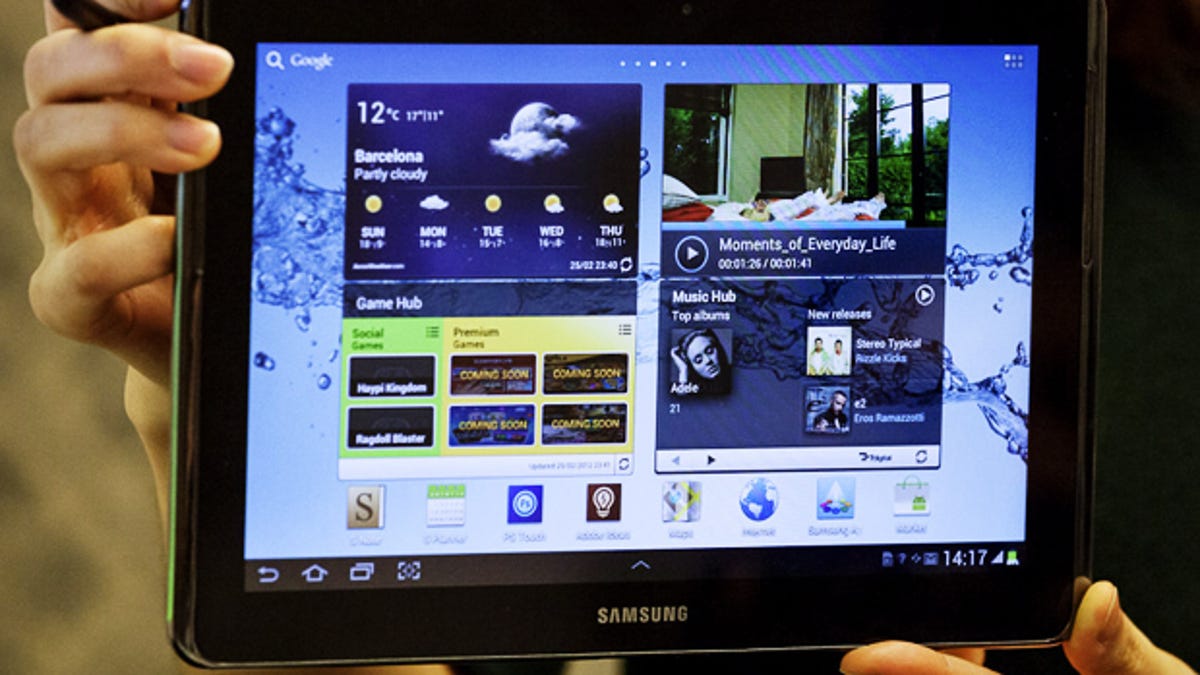Latest rivalry between Samsung, Apple: Tablet margins
A teardown of Samsung's Galaxy Note 10.1 by IHS finds that Samsung could turn a pretty penny -- if it resists a bad habit nagging most manufacturers.

In their latest product teardown, the folks at IHS Teardown Analysis Service dissected the Galaxy Note 10.1 and found that Samsung could wind up with a better profit margin for its tablet than Apple could on the iPad -- but with one big "if": Samsung will have to be resist the temptation to discount.
A preliminary analysis of the component cost of the Galaxy Note 10.1 reveals the HSPA+ version of the media tablet carries a bill of materials (BOM) of $283. When basic manufacturing costs are added in, the cost to produce the tablet increases to $293. This version sells for approximately $640 in the world market...
For the Wi-Fi-only version of the Galaxy Note 10.1, the BOM is estimated to decline to about $260. U.S. retail pricing for this version has been announced at $499. In comparison, a similarly equipped third-generation new iPad with Wi-Fi and 16GB of NAND flash memory carried a $316 (BOM) at the time of release and a retail price of $499, (so) Samsung will be able to garner a larger margin on the Galaxy Note 10.1 than Apple did for the iPad--on paper.
IHS said in its note that the Galaxy Note 10.1 might turn a decent per unit margin for Samsung and be a money maker -- assuming that Samsung can translate the success enjoyed by its Galaxy Note smartphone to its tablet line. Another big unknown mentioned by IHS: Samsung will have to maintain the product's opening price. That has proved difficult for many vendors facing the realities of an increasingly hardscrabble market where a host of wannabe No. 2's are jockeying with each other for post position as they hope to take a piece of Apple's share of the market.
"And therein lies the rub," according to HIS's Rhoda Alexander. "No Apple rival has yet demonstrated the capability to actually sell in volume at $499, instead falling back on price cuts in order to drive volume."
Unlike other tablet makers -- Amazon comes immediately to mind -- Samsung is a rare vertically integrated tech giant that controls many of the parts which it uses in its products. Indeed, IHS noted that Samsung supplies its own memory, battery and processors, among other componentry -- advantages that help counterbalance Apple's Wal-Mart-like ability to use its heft to beat up suppliers for better pricing.

